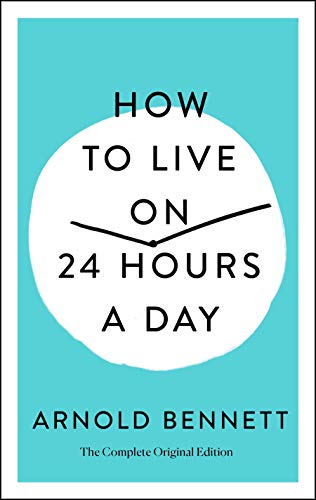-
Skeleton Man
Jay Bennett
Mass Market Paperback (Fawcett, June 12, 1988)Ray accepts his uncle's generosity, never suspecting he'll become trapped in a web of terror....Ray Bond's Uncle Ed had always been a shadowy figure, with little interest in his nephew. On Ray's eighteenth birthday, Ed gives him thirty thousand dollars in cash. He makes Ray swear he'll never tell where he got it.The next day Uncle Ed leaps from the twelfth floor of his midtown hotel.Stunned, Ray keeps his promise and withholds his secret from his grieving mother and Laurie, his girlfriend. Keeping his word is harder when he hears from Uncle Ed's girlfriend, Alice Cobb. She tells him about Ed's gambling debts and her conviction that his uncle didn't jump, but was pushed from the window.Ray also hears from Albert Dawson, the sadistic thug who may be responsible for Ed's death. He tells Ray that Ed owed him money. Furthermore, he knows where that money is. Ray senses Dawson is not the kind of guy to cross, not if you value your life....
-
The Pigeon
Jay Bennett
Paperback (Avon Books, Aug. 1, 1983)None
-
Deathman, Do Not Follow Me
Jay Bennett
Hardcover (E P Dutton, June 1, 1972)Book by Jay Bennett
-
Content-Based Chapter Books Fiction
Jean Bennett
Paperback (National Geographic School Pub, March 11, 2007)An ancient Maya boy becomes a village hero, and a modern brother and sister protect their ancestors' treasures from intruders. The Everyday Kids Then and Now series introduces students to ancient and modern cultures. Each book offers two adventure stories. Both are set in the same place but occur thousands of years apart. In each, a modern child finds an object that belonged to a child of ancient times. (Genre: Adventure Stories) S
S
-
Harriet's Light
J. H. Bennett
language (, June 15, 2017)Twelve-year-old Harriet lives on top of a hill with her parents in a small colony of sorcerers who conjure and manipulate Light; a form of sorcery called Lightcraft. Harriet’s Lightcraft powers are far more advanced than anyone else her age which, unfortunately, causes Harriet to be excluded by the other children, all because she is a little different. But their lack of respect for her is soon going to change.When an ancient malevolent force escapes from its prison, intent on bringing about a new age of Darkness, the Sorcerers of Light must do everything in their power to banish this evil, forever. The impending war between Light and Darkness is about to erupt and Harriet is caught in the middle of a battle which she has a bigger part to play in than she realises.Follow Harriet on her adventure as she learns new Lightcraft spells, comes face to face with the Spirit of Darkness and discovers that she has a destiny far beyond her wildest dreams.
-
Dark Corridor
Jay Bennett
Mass Market Paperback (Fawcett, Aug. 28, 1990)In fact, her money didn't matter to him. He liked Alicia for herself and felt comfortable being with her. But maybe Kerry didn't know her as well as he thought. After a shocking wave of teenage suicides, he got a call from Alicia's stepmother. "Alicia has killed herself. Like the others...just like the others."In a world where everything was suddenly cloudy and confused, one thing was certain: Alicia was nothing like the others. She would never kill herself, not the Alicia Kerry knew. But if it wasn't suicide, then what killed her -- and why...?
-
The Ghost
Bennett A.
language (Aegitas, March 24, 2016)The novel opens with Carl Foster, a recently qualified doctor, coming to London to try and make his fortune. He meets a famous tenor, Signor Alresca, who suffers a dreadful injury backstage and Foster tends to him. He thus meets the lead soprano, Rosetta Rosa, and falls hopelessly in love with her. Alresca takes Foster under his wing and they travel to Alresca's home in Bruges. It is clear to Foster that Alresca has some strange obsession. Foster also notices a stranger who seems to be dogging his footsteps. Things take an even more sinister turn when Alresca inexplicably dies. . . Enoch Arnold Bennett was born in Hanley, Stoke-on-Trent on the 27th May 1867. His infancy was spent in genteel poverty, which gave way to prosperity as his father succeeded as a solicitor. From this provincial background he became a novelist. His enduring fame is as a Chronicler of the Potteries towns, the setting and inspiration of some of his most famous and enduring literary work and the place where he grew up. Bennett did not pursue a career as a writer until after leaving his father's practice and moving to London in 1889 when he won a literary competition conducted by the magazine "Tit Bits". Encouraged to take up journalism full-time, he became assistant editor of "Woman" in 1894. Just over four years later his first novel, "A Man from the North", was published to critical acclaim. This was followed in 1902 by "Anna of the Five Towns", the first of a succession of stories which detailed life in the Potteries and displayed his unique vision of life in its towns. Between the end of 1903 and 1911 Bennett lived mainly in Paris. In Paris he met Marguerite Soulié whom he married in 1907. During his eight years in Paris he continued to enjoy critical success with the publication of many novels including "The Old Wives' Tale" (1908). After a visit to America in 1911, where he was acclaimed as no other visiting writer had been since Dickens, he returned to England where the "Old Wives' Tale" was reappraised and hailed to be a masterpiece. In 1921 he separated from Marguerite. The following year he fell in love with the actress Dorothy Cheston. They lived together until his death. She changed her last name to Bennett, although they were never legally married. They had one child, Virginia, born in 1926. In 1931 he became ill during a trip to France, returned to London, and died of typhoid fever. His ashes are buried in Burslem cemetery. Their daughter, Virginia Eldin, who eventually went to live in France, became President of the Arnold Bennett Society. Although Arnold Bennett never returned to the Potteries to live, he never forgot the debt which he owed to his birthplace for giving him a unique setting for so many of his novels, a setting which he enhanced with his penetrating description of people and places. (Bennett made up names for his Five Towns, but these names left nobody in doubt about the true identity of the towns. His Turnhill is really Tunstall, Bursley is Burslem, Hanbridge is Hanley, Knype is Stoke, and Longshaw is Longton.) It is perhaps unfortunate that Bennett felt that "The Five Towns" sounded better than "The Six Towns", and thus relegated the sixth town of the Potteries, the town of Fenton, almost to oblivion. As a chronicler of The Potteries he assured a permanent place in English literature for the district. His penultimate novel, The Imperial Palace, was set in the Savoy Hotel. To mark the book's importance as a great literary work, the hotel created the Omelette Arnold Bennett, which has remained on its menu ever since.
-
Deathman, Do Not Follow Me
Jay Bennett
Paperback (Scholastic Paperbacks, Oct. 1, 1986)A high school boy who knows the identity of the thieves who stole a valuable Van Gogh painting from the Brooklyn Museum enters a world of murder and betrayal
-
Holt McDougal Mathematics, Course 2
Jennie M. Bennett
DVD-ROM (Holt McDougal, March 10, 2009)With a single drop of ink for a mirror the Egyptian sorcerer undertakes to reveal to any chance comer far-reaching visions of the past. This is what I undertake to do for you reader.
-
My Little Dog, Fifi
Jenna Sue Bennett
Paperback (CreateSpace Independent Publishing Platform, March 5, 2015)Written when she was seven years old, Jenna’s first book “My Little Dog, Fifi” is a book about the friendship a young child shares with a cherished toy. This is the true story of Jenna’s plush dog Fifi and the adventures Jenna shared with her. Young children will love the simplicity that brings this book to life. Favorite childhood toys... once they are loved, are forever loved. “My Little Dog, Fifi” shares this precious love. N
N
-
When the tide goes out
P J Bennett
Paperback (UK Book Publishing, Oct. 9, 2015)Tom Baxter and his wife, Sarah, have decided to leave England and retire to the peace and tranquillity of a remote, run-down, hill farm on the island of La Palma, in the Canaries. What should have been a relaxed and stress-free retirement rapidly turns into a nightmare of epic proportions when the volcanic ridge underneath their new home begins to erupt, and threatens to trigger a mega-tsunami with the potential to wipe out every city on the Atlantic coast of North America. With the spotlight of global media attention focused on their island home, the couple are soon caught up in a rapidly changing set of deadly events which ultimately transforms their lives, and the lives of many tens of thousands of people in the Canary Islands and beyond. "'WHEN THE TIDE GOES OUT' is a thrilling and tense read and if you love films like '2012' and 'The Day After Tomorrow' you will certainly love this book." - Sarah Hardy, By the Letter Book Reviews
-
How to Live on 24 Hours a Day
Bennett
(Griffin, Feb. 4, 2020)Learn to use your most precious commodity―time―to truly live.Arnold Bennett’s classic book, How to Live on 24 Hours a Day, has been changing the way people use and consider their time since it was first published in 1910. In the intervening century surprisingly little has changed―we still struggle to make use of our time and are often plagued by the persistent worry that we are not making the most of our lives. Bennett encourages readers to stop merely following the rote patterns of their lives and leverage their free hours by viewing time as a commodity like money―each of us is allotted exactly 24 hours every day to spend as we see fit. What we make of our lives will ultimately be a result of what we make of that time. Bennett’s prescription is simple, but revolutionary: consider the time outside your work day as an entirely separate day, sixteen hours (give or take) during which you are free to do anything you like to grow and improve yourself and your happiness. Building on that premise, he helps readers begin to take control of their time―starting with just 90 minutes three times a week―and use it to truly live. Bennett’s writing is realistic and his advice transcends the years since it was first written. How to Live on 24 Hours a Day is an honest and refreshing perspective on how we can seize control of our time and spend it in the wisest way possible.